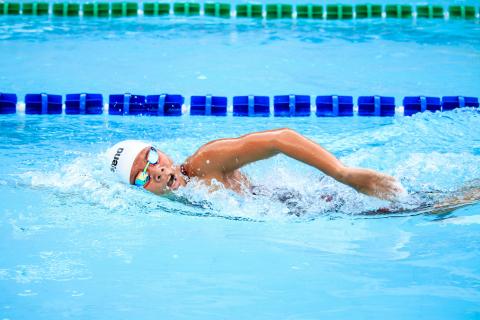Balancing the Game and the Books: Student-Athletes
Apr 18,2024
College life is a whirlwind of academic, social, and personal challenges for all students. However, student-athletes face a unique set of challenges as they strive to excel both in the classroom and on the field or court. Balancing rigorous academic coursework with demanding athletic schedules requires exceptional time management, discipline, and resilience. Let's explore the challenges that student-athletes may encounter in a college environment and strategies to help them succeed both academically and athletically.
Academic Challenges
-
Time Management: Student-athletes often juggle multiple commitments, including practices, games, and travel, which can make it challenging to find time for studying, attending classes, and completing assignments.
-
Academic Eligibility: Maintaining a minimum GPA and meeting academic progress requirements to remain eligible to compete can add pressure and stress to student-athletes' academic responsibilities.
-
Major Selection: Choosing a major that aligns with their athletic schedule and future career goals can be challenging, especially for student-athletes in demanding sports that require year-round commitment.
-
Missed Classes: Traveling for games and competitions can result in missed classes, requiring student-athletes to catch up on material and communicate effectively with professors to stay on track academically.
Athletic Challenges
-
Injury Risk: Student-athletes face a higher risk of injury due to the physical demands of their sport, which can impact their ability to train, compete, and maintain their scholarship.
-
Performance Pressure: The pressure to perform at a high level can be intense, leading to stress, anxiety, and mental fatigue that can affect both athletic performance and overall well-being.
-
Time Commitment: The time commitment required for practices, games, and travel can be overwhelming, leaving little time for rest, recovery, and other extracurricular activities.
-
Transition to College Athletics: The transition from high school to college athletics can be challenging, as student-athletes adapt to higher levels of competition, increased expectations, and a more demanding training regimen.
Social and Personal Challenges
-
Social Isolation: The demands of being a student-athlete can lead to feelings of isolation, as student-athletes may struggle to find time for socializing and building relationships outside of their sport.
-
Identity and Self-Worth: Student-athletes often derive a significant part of their identity and self-worth from their athletic achievements, which can lead to struggles with self-esteem and identity if they face setbacks or challenges in their sport.
-
Financial Pressure: Balancing the financial demands of college, such as tuition, living expenses, and personal expenses, can be challenging, especially for student-athletes who are not on a full scholarship.
Strategies for Success
-
Time Management and Organization: Developing strong time management and organizational skills is essential for student-athletes to balance their academic and athletic responsibilities effectively.
-
Seek Support and Resources: Utilizing academic support services, such as tutoring, academic advising, and study halls, can help student-athletes succeed academically.
-
Open Communication: Building strong relationships with professors, coaches, and teammates through open communication can help student-athletes navigate challenges and seek support when needed.
-
Self-Care and Well-Being: Prioritizing self-care, including proper nutrition, hydration, sleep, and mental health support, is crucial for student-athletes to maintain their physical and mental well-being.
From balancing demanding schedules and meeting academic eligibility requirements to managing performance pressure and maintaining social connections, student-athletes must navigate a complex landscape filled with opportunities and challenges.
By developing strong time management skills, seeking support and resources, fostering open communication, and prioritizing self-care and well-being, student-athletes can overcome these challenges and thrive both in the classroom and on the field or court. With dedication, resilience, and a supportive network of coaches, teammates, professors, and advisors, student-athletes can achieve success both academically and athletically during their college journey and beyond.






